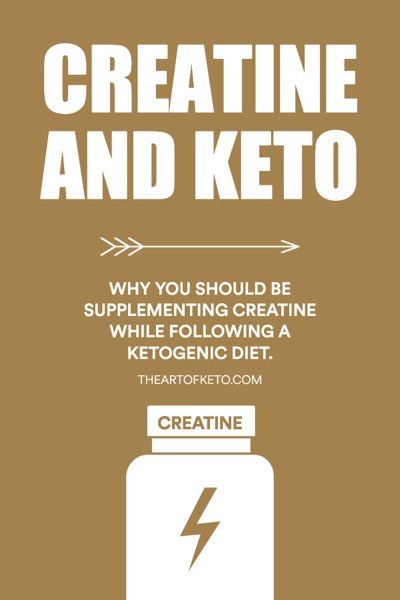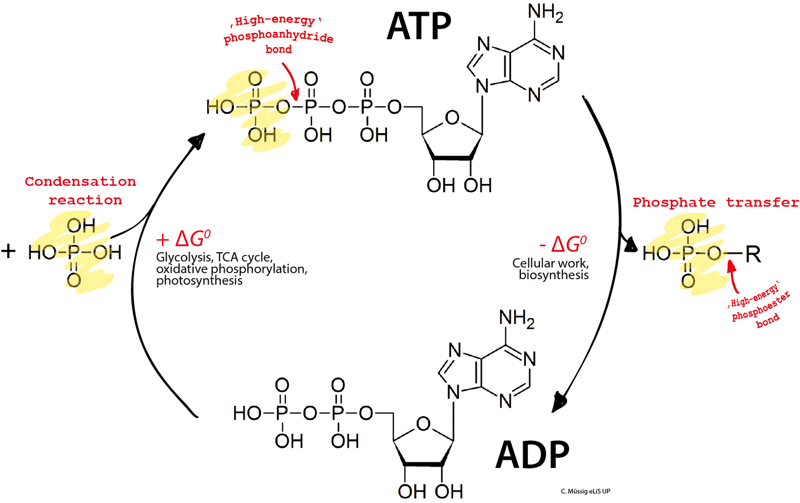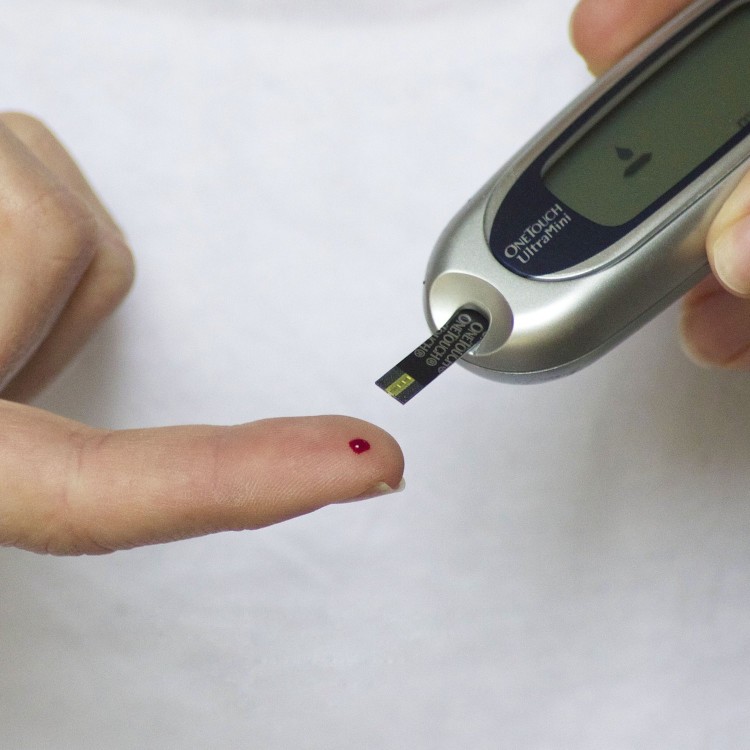When it comes to supplements, there's one in particular that I've taken longer than ANY other supplement. As of writing this, I've taken creatine for just over 20 years.
This is because THIS particular supplement is one of the most well-studied, effective, safest, and cheapest supplements you can add to optimize your training and nutrition. I'm talking about creatine.
Creatine has 0 grams of net carbs and may be taken while on a keto diet as a beneficial supplement to increase strength and power output. Recent research shows that creatine may also provide a modest benefit for bone and brain health, along with better blood sugar control.
In this article, I'm going to cover EVERYTHING you need to know to know about creatine. You'll also learn why creatine may be the ONE supplement you should be taking if you aren't already.
So let's get to it!

Table of Contents
Does Creatine Kick You Out Of Ketosis?
You should know, as the supplement creatine itself is keto-friendly. There is no need to worry about being kicked out of ketosis if you choose to supplement with creatine.
Bear in mind, when I say creatine is keto-friendly, this only refers to the creatine itself, and NOT every creatine supplement on the market.
While creatine is available practically everywhere supplements are sold, some creatine supplements come pre-mixed with added sugars. You should check the label to make sure that only creatine is listed under the ingredients list.
When creatine was first marketed, it was often suggested that creatine be mixed with juice or any other simple sugars to improve uptake, but we now know that isn't required.
Why Take Creatine On A Ketogenic Diet
Creatine may potentially buffer some of the performance drops you may experience when switching to a ketogenic diet, aka the “keto-adaptation” period.
As a ketogenic diet is low carb in nature, Much of the strength and endurance loss is initially due to decreased glycogen, especially in the muscle.
Think of glycogen as an energy reserve of glucose/carbohydrates.
In particular, muscle glycogen serves as a form of energy storage for the muscle itself.
Creatine has been found to increase skeletal muscle glycogen, which may help anyone following a relatively low-carb diet, such as a ketogenic diet where less glucose is avaialble.1
However, according to the FASTER study, once you've become keto-adapted, glycogen utilization and repletion during and after exercise seem to be similar to athletes on a higher carb diet, likely through gluconeogenesis.2
Creatine 101
We naturally store creatine in our muscles.
When our muscles do work, they use what is called (ATP) adenosine triphosphate, three phosphates. When ATP is used, a phosphate group Is removed, which turns ATP into (ADP) adenosine diphosphate, two phosphates.
Creatine works by “donating” a phosphate to ADP, thus making it ATP once again, priming us to be able to do more work in a short amount of time.

You can think of creatine supplementation as a reserve, much like a hybrid car stores energy for when it needs it.
As we use ATP and it becomes ADP, creatine acts as a reservoir for ADP to pull from and quickly be recycled back into ATP.
The fuel we use during exercise is determined by the intensity and duration of the activity itself. 3 Specifically, high-intensity exercise uses a large amount of total ATP.
However, the amount of ATP we can store in the muscle is relatively small.
ATP is the reason you can't maintain a full sprint for a relatively long period, or your muscles get weaker as you progress through a workout, your muscles don't have the energy to maintain the same power it did when you first started.
Creatine, Keto, And Water Retention
One of the fears people have in supplementing creatine is the increased water retention that comes along with it.
After only a week of creatine loading, people often report increases of 1-2kg of weight gain. The rapid increase in weight is usually due to increased water retention from the creatine.
Creatine is osmolytic; meaning, increased creatine storage in the muscle will draw water into the muscle cell.
Therefore, if you do experience water retention, it is INTRAMUSCULAR water retention, as inside your muscle. You shouldn't experience what most people think of when they think of water retention, as in that bloated, puffy look.Many people find that water retention is only temporary, and their weight quickly begins to even out to where it was before starting.
If anything, the increased water retention should make you look leaner and more “toned,” as the muscles swell with water and push against the skin, giving the illusion of more definition. The increased weight should also give you a slight boost in the gym.
When And How To Take Creatine On A Keto Diet?
Creatine, regardless of when you take it, will do its job at saturating muscle creatine storage.
There is very little data, but results from one study suggest that taking creatine post-workout may lead to minimal increases in fat-free mass. 4
At the end of the day, timing doesn't seem to matter much at all. Therefore, take creatine whenever you feel it's most convenient for you to do do.I mix mine in water or throw it in my mouth and chase it down. You don't want to pre-mix your creatine and save it for later as it is unstable in liquid, so you should consume it immediately after mixing it in any liquid.
How Much Creatine To Take On A Ketogenic Diet?
There is a myriad of protocols when it comes to supplementing creatine. The whole point of supplementing creatine is to saturate muscle creatine storage.
“Loading” is a popular method often used to saturate muscles quickly with a high dose before moving to a “maintenance” dose.
However, while loading is effective at saturating muscles quickly, it isn't necessary. Moderate daily doses of 3 grams per day have been shown to saturate muscle creatine storage after 3 to 4 weeks of supplementation. 5Slow and steady wins the race.
Another reason to forego the “loading phase” is that some individuals may experience mild gastrointestinal discomfort. It would seem that discomfort with creatine supplementation is dose-dependent, with higher doses causing gastrointestinal upset. 6
Traditionally, research supports 3g of creatine per day for women and 5g for men to be sufficient enough to saturate muscle creatine storage over time.
Which Creatine Should You Take On A Ketogenic Diet?
There are plenty of different “types” of creatine on the market with claims of being more bioavailable or offering faster absorption, but when it comes to the literature, creatine monohydrate is the first form of creatine ever to be studied.
Not only is creatine monohydrate the first form of creatine supplementation to be studied, but it is the most widely studied and the most affordable type of creatine.
No other form of creatine, despite their claims, has been shown to outperform creatine monohydrate; therefore, I don't see a need for you to spend extra money on other forms of creatine.Of course, unless you feel like experimenting with it yourself.
What Are The Benefits Of Creatine
The primary benefit of creatine is improved strength and power output during exercise, but there may be more to creatine than sports performance.
Creatine and the brain
Creatine plays a critical role in brain health and function, with ~5% of your total body creatine storage used to fuel brain activities.7
Further research suggests that creatine may also improve cognitive performance. Older individuals supplementing creatine for two weeks were able to improve memory and recall significantly. 8
Also, creatine has been shown to reduce mental fatigue and protect the brain from neurotoxicity. These benefits have made creatine of interest for neurological and age-related diseases such as: 9
- Parkinson's
- Huntington's
- Amyotrophic lateral sclerosis
- Alzheimer's
- Stroke
May lower blood sugar levels

Exercise in and of itself helps lower blood sugar levels, but in a 12-week study, people who combined creatine with exercise exhibited better blood sugar control than those who only exercised. 10
In another test, sedentary and healthy men who supplemented creatine showed improved glucose tolerance. 11
The Takeaway
When it comes to creatine, there may be more benefit to supplementing with it than strictly athletic performance.
Out of any supplement, creatine is one of the most well-studied in terms of its effectiveness and safety on a variety of populations (athletes, healthy, elderly, and even not so healthy). Therefore, creatine may be used by anyone, regardless of age, athletic ability, or gender.
Are you looking for other effective supplements? Check out the best keto friendly supplements you can add to your ketogenic diet to get the most bang for your buck.
Creatine is not only keto-friendly (assuming you're not ingesting it with a sugary mix), but can benefit almost anyone who takes it, but especially those who engage in resistance exercise.
When taking creatine, creatine monohydrate is the most studied and least expensive form with a dose of 3-5g being sufficient enough to saturate creatine muscle storage.
When you take creatine doesn't seem to matter with one study showing a small benefit in taking it after exercise.
Creatine should be taken daily and consistently with no need to cycle off.
Does creatine need carbs to work?
Creatine doesn't need carbs to work. However, the presence of carbs certainly does help as it releases insulin which promotes muscle growth.
Does creatine act as a fat burner?
While creatine isn't a fat burner, it does play a major role in helping accelerate your metabolism and boost workout performance.
How much water should I drink with creatine?
For a 5g intake of creatine, you need to consume 8 ounces of water.
